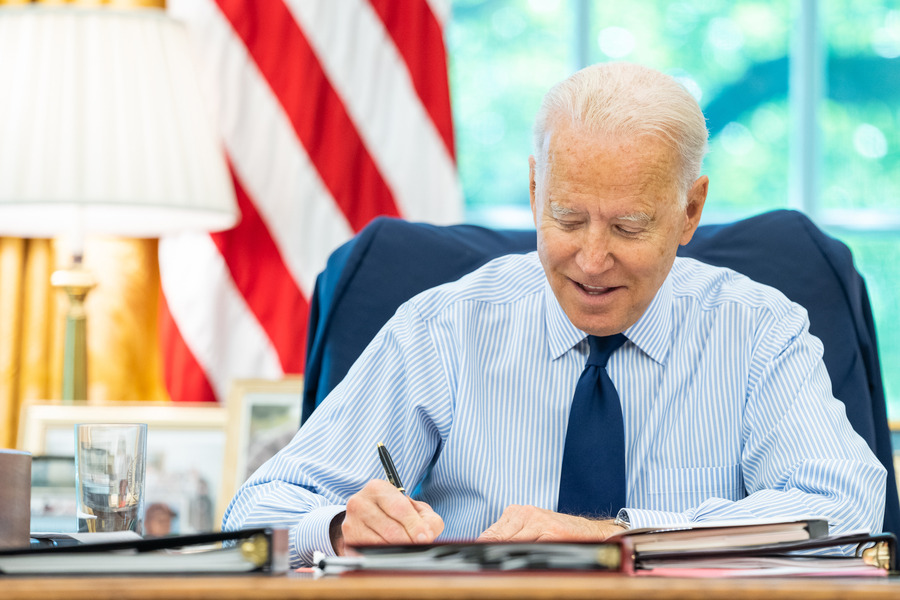The Arguments About Guantanamo are Nearly All Wrong, Disingenuous, Irrelevant, or Just Plain Dumb
Last night, President Obama restated his long-standing desire to close Guantanamo: "As Americans, we have a profound commitment to justice---so it makes no sense to spend three million dollars per prisoner to keep open a prison that the world condemns and terrorists use to recruit. Since I’ve been President, we’ve worked responsibly to cut the population of GTMO in half. Now it’s time to finish the job. And I will not relent in my determination to shut it down. It’s not who we are."
Needless to say, Republican fans of G
Published by The Lawfare Institute
in Cooperation With

Last night, President Obama restated his long-standing desire to close Guantanamo: "As Americans, we have a profound commitment to justice---so it makes no sense to spend three million dollars per prisoner to keep open a prison that the world condemns and terrorists use to recruit. Since I’ve been President, we’ve worked responsibly to cut the population of GTMO in half. Now it’s time to finish the job. And I will not relent in my determination to shut it down. It’s not who we are."
Needless to say, Republican fans of Guantanamo continue to oppose releases from the facility, much less closure of it. Over the past few weeks, as a number of transfers have taken place and these have---wrongly, in my view---increased the sense of momentum towards actual closure, I have been struck by how lousy the argumentation has been on all sides about the merits of the matter.
To put it bluntly, I find none of the arguments on either side compelling.
The opponents of Guantanamo closure are embarrassing themselves. Distinguished senators are arguing for new restrictions on transfers. Commentators are recklessly connecting releases from Guantanamo to what happened in Paris (if you've missed the connection here, both have something to do with Yemen). We hear repeatedly that all detainees at Guantanamo now are the worst of the worst---which is certainly false. We hear that a large percentage of released detainees have returned to the fight---which is true but ignores the difference between bulk transfers in the past and the highly individualized review and special arrangements that detainees are getting today. And underlying it all is the silly and quite destructive idea that it should be impossible to bring detainees to the United States for either criminal prosecution or continued detention.
Yes, if you rule out all other options (transfer, release, detention elsewhere, and prosecution), Guantanamo becomes a necessity. But that's not an argument. It's a tautology.
The "close Guantanamo" folks are little better. Most recently, we have been hearing how expensive the facility is, as though the human rights movement is traditionally animated by fiscal matters. It's true, but the marginal cost of Guantanamo is a rounding error on a rounding error. And more importantly, money is not why anyone opposes the site. When was the last time you heard anyone say, "I really think the optimal location for U.S. detention operations is Guantanamo Bay, but I favor closing it because of the cost"? I haven't either.
We hear that Guantanamo is a recruitment tool for the enemy---a notion the administration has long oversold. To whatever extent it's true, it will be just as true of Guantanamo's successor. And more broadly, U.S. policy in a thousand areas is a recruiting tool of an enemy that hates the United States.
We hear that Guantanamo is illegal. It's not.
We hear that it's against our values, that it's "not who we are." But the proponents of this view---including President Obama---propose to continue law of war detentions somewhere else, meaning that it is who we are. And the proponents of this view who actually mean it---like the human rights groups---are never quite prepared to say what they really mean: that they favor releasing Abu Zubaydah and Hambali and the other hardest-core terrorists at the site against whom no criminal charges have yet materialized.
The whole discussion is an exchange of bad arguments that shouldn't move a thinking public.
And there's a reason for this: We're debating the wrong question---the location of a policy instead of a policy itself. Guantanamo is a political symbol, nothing more. Yet we've mapped onto it a set of political brandings about attitudes towards "toughness," the "rule of law," law enforcement vs. military visions of counterterrorism, and a hundred other issues that have little to do with the men held there or the legal status of their detentions. Guantanamo is a proxy for the fights we wish to have about such matters, waged by people who often have a very limited sense of who is there and what the realistic alternatives to detaining them there actually are. It makes for a terrible debate on both sides.
Benjamin Wittes is editor in chief of Lawfare and a Senior Fellow in Governance Studies at the Brookings Institution. He is the author of several books.





